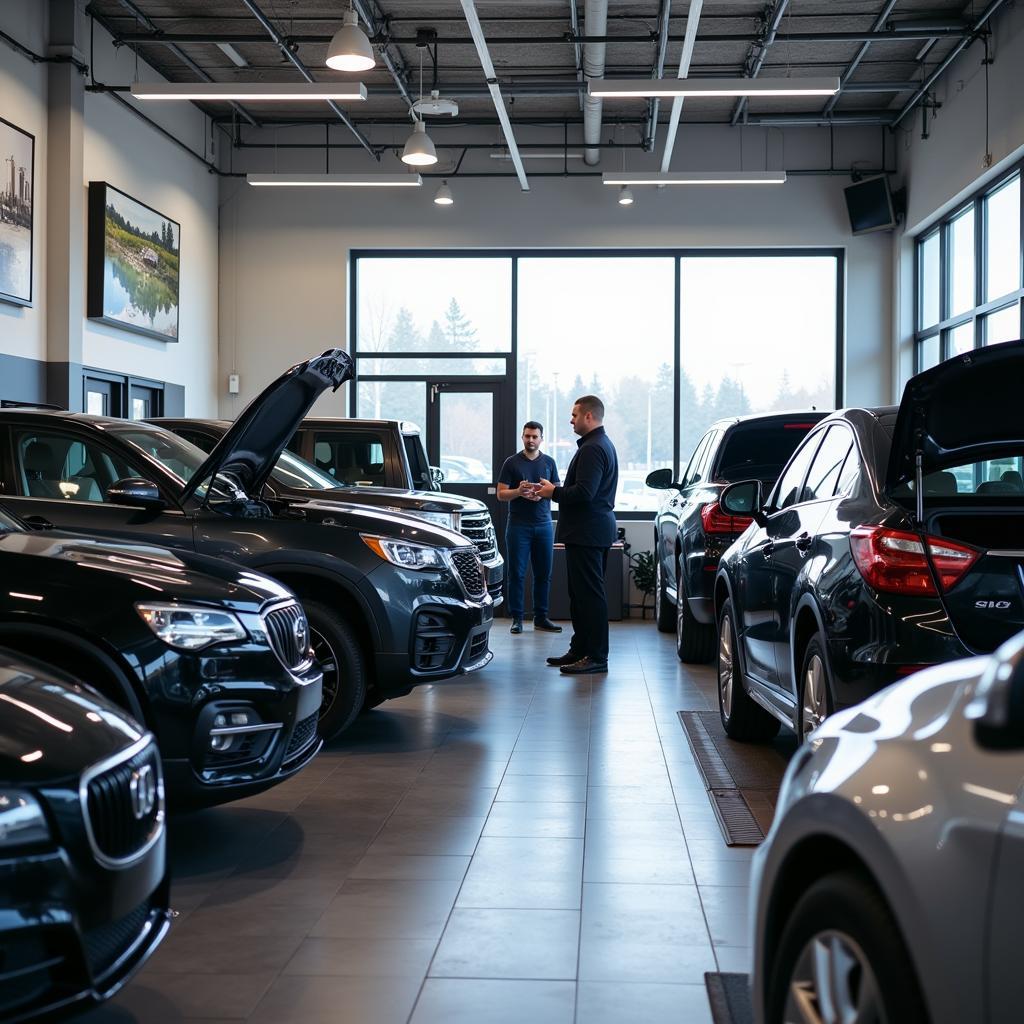Are Car Dealerships Essential Services?
The question of whether car dealerships are essential services is a complex one. On the surface, it might seem like a simple “yes” or “no” answer, but the reality is much more nuanced. The answer depends on various factors, including your individual needs, local regulations, and the current state of the automotive industry.
The Case for Essential: Why We Depend on Dealerships
Traditionally, car dealerships have played a crucial role in the automotive ecosystem. They are the primary point of contact for consumers looking to purchase new or used vehicles. Let’s delve into the reasons why they’ve been considered essential:
- Access to New Vehicles: Dealerships act as the gatekeepers for new car models. They manage inventory, handle logistics, and provide a physical location for customers to view, test drive, and purchase vehicles.
- Financing and Warranty: For many buyers, securing financing is a critical part of the car-buying process. Dealerships have established relationships with lenders, making it easier for customers to access loans. Additionally, they manage warranty claims and repairs, often offering loaner vehicles and streamlining the process.
- Vehicle Maintenance and Repairs: Beyond the initial purchase, dealerships typically have service centers staffed with trained technicians who specialize in their brand of vehicles. This provides customers with a reliable source for routine maintenance, repairs, and access to specialized parts.
- Local Economic Impact: Dealerships are often significant employers in their communities, providing jobs and contributing to the local economy.
 Busy Car Dealership Service Center
Busy Car Dealership Service Center
The Rise of Alternatives: Challenging the Status Quo
The digital age has ushered in a new era of car buying, offering consumers alternative avenues to traditional dealerships:
- Online Car Marketplaces: Websites and apps like Carvana, Vroom, and even traditional retailers like Costco offer a vast selection of new and used vehicles, often at competitive prices. These platforms often handle financing, trade-ins, and even deliver vehicles directly to your doorstep.
- Direct-to-Consumer Sales: Tesla, a pioneer in electric vehicles, has disrupted the traditional dealership model by selling directly to consumers. This approach bypasses the dealership network and gives manufacturers greater control over the sales and customer experience.
- Independent Mechanics: For routine maintenance and repairs, car owners now have more options than ever. Independent mechanics and national chains offer competitive pricing and often specialize in specific makes and models, providing a viable alternative to dealership service centers.
So, Are Dealerships Essential? It Depends.
The evolving automotive landscape makes it difficult to definitively label car dealerships as “essential.” While their role is changing, they still hold relevance for a segment of car buyers who value the traditional experience and the convenience of a one-stop-shop for purchasing, financing, and servicing their vehicles.
Here’s a breakdown of when a dealership might be the preferred option:
- You value a personalized, face-to-face experience.
- You prefer to test drive a vehicle before making a purchase.
- You need financing and prefer to handle it in person.
- You value the peace of mind that comes with a dealership warranty and service center.
However, if you’re comfortable with online research, confident in your negotiation skills, and open to alternative financing options, then exploring online marketplaces or direct-to-consumer sales might be a better fit.
Finding the Right Fit for Your Car Needs
Ultimately, the decision of whether to utilize a car dealership or explore alternatives comes down to your individual needs and preferences.
Need help finding a reputable mechanic near you or want to compare car service quotes? Check out these resources:
Remember, knowledge is power. Arm yourself with information, explore all your options, and make an informed decision that aligns with your budget and priorities.

